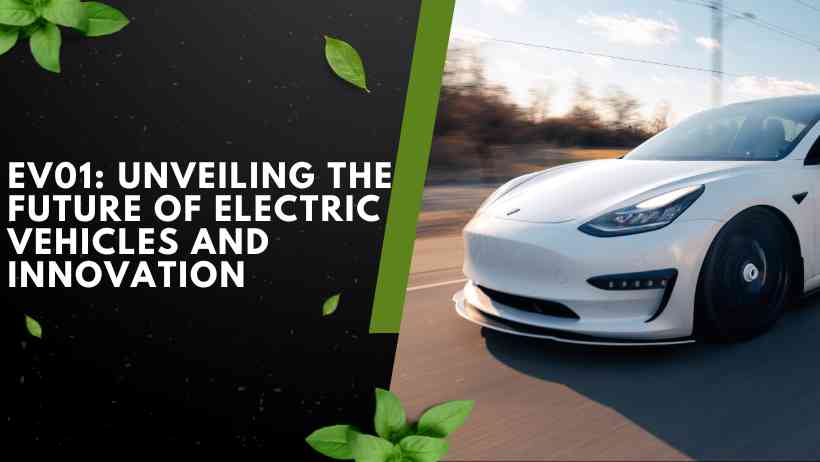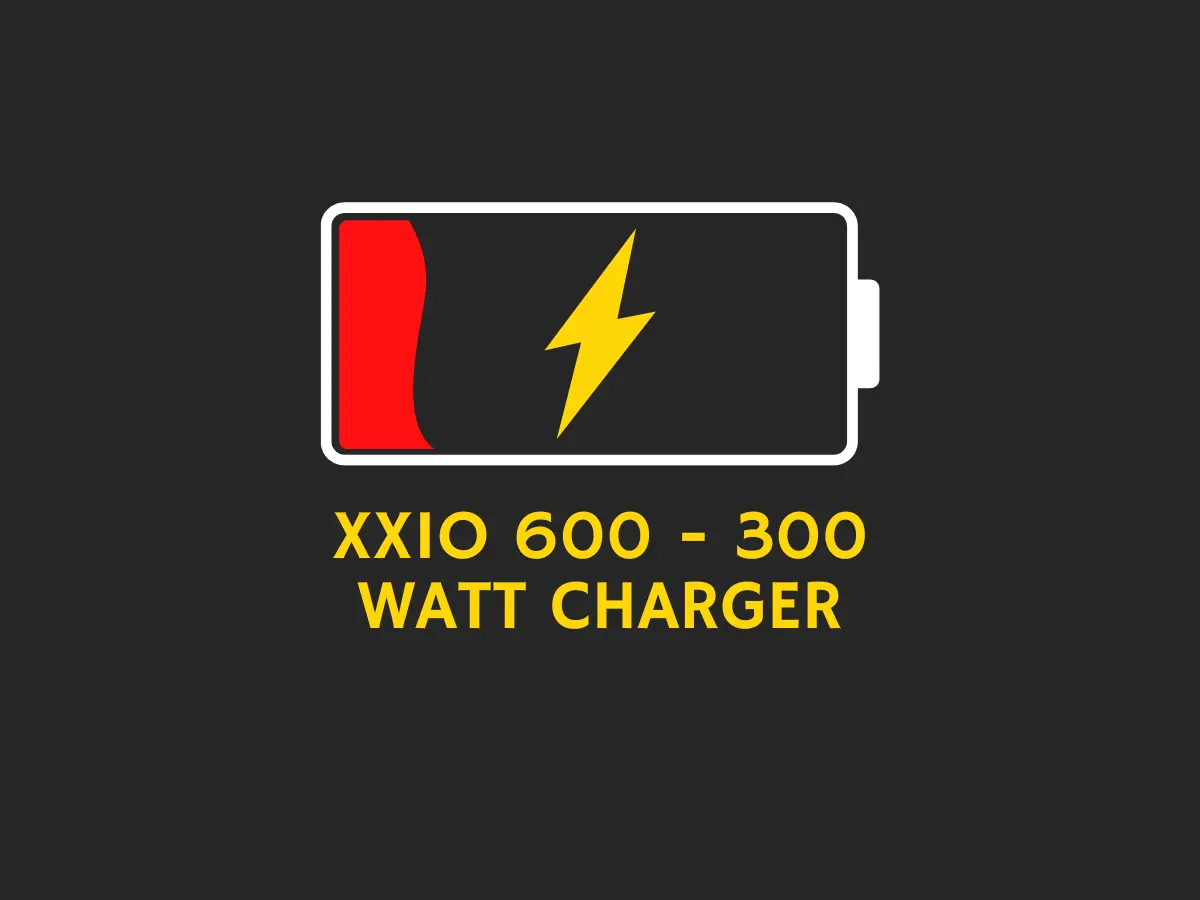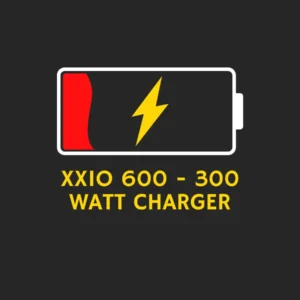EV01: Unveiling the Future of Electric Vehicles and Innovation
Introduction
Electric vehicles (EVs) are no longer just a concept of the future—they are an essential part of today’s automotive landscape, leading the charge towards a cleaner, more sustainable world. With rapid technological advancements, EVs have evolved from mere novelties to mainstream vehicles, favored for their efficiency, performance, and eco-friendliness. Among these, an innovation known as EV01 is poised to revolutionize the industry. In this article, we’ll dive deep into the evolution of electric vehicles, explore what makes EV01 a groundbreaking innovation, and discuss its potential impact on the automotive world.
The Evolution of Electric Vehicles
Early Beginnings of EVs
The story of electric vehicles dates back to the early 19th century when inventors began experimenting with electric-powered transportation. The first successful EV was created in 1828 by Ányos Jedlik, a Hungarian engineer, who designed a small-scale model powered by a simple electric motor. By the late 19th century, electric cars became quite popular, especially in urban areas, due to their quiet operation and lack of emissions. However, with the advent of gasoline-powered engines offering more excellent range and speed, EVs quickly faded from the spotlight.
The Rise of Modern EVs
Fast forward to the late 20th and early 21st centuries, the automotive industry witnessed a resurgence of interest in electric vehicles, driven by growing concerns over environmental pollution and the finite nature of fossil fuels. Pioneers like Tesla played a pivotal role in rekindling the world’s interest in EVs, introducing sleek, high-performance models like the Tesla Roadster and Model S. This marked the beginning of a new era, where EVs were no longer seen as merely eco-friendly alternatives but as cutting-edge vehicles with superior technology.
Current Market Trends
Today, the EV market is booming, with major automotive giants like Nissan, BMW, and General Motors joining the fray. Models such as the Nissan Leaf, Chevrolet Bolt, and BMW i3 have gained significant traction, contributing to the growing shift towards electric mobility. The global EV market is projected to grow exponentially, with governments worldwide implementing policies to phase out internal combustion engines in favor of electric alternatives.
Understanding the Concept of EV01
What is EV01?
EV01 represents the next frontier in electric vehicle technology. It is more than just a car; it symbolizes the future, combining the latest advancements in battery technology, autonomous driving, and sustainable materials. EV01 is designed to push the boundaries of what electric vehicles can achieve, offering an unparalleled driving experience while being environmentally conscious.
The Vision Behind EV01
The creators of EV01 envisioned a vehicle that not only meets modern drivers’ demands but also anticipates future trends. Their goal was to design a car that is not just a means of transportation but a vital component of a larger ecosystem, where cars are integrated with smart cities, renewable energy sources, and advanced communication networks. EV01 is the embodiment of this vision, blending innovation with practicality.
Key Features of EV01
EV01 has features that set it apart from other electric vehicles. From its state-of-the-art battery system, which offers extended range and faster charging times, to its advanced autonomous driving capabilities, EV01 is designed for the future. The use of sustainable materials in its construction ensures that it leaves a minimal environmental footprint, while its sleek design appeals to the aesthetic tastes of modern consumers.
Technological Innovations Driving EV01
Battery Technology
One of the standout features of EV01 is its revolutionary battery technology. Unlike traditional lithium-ion batteries, EV01 utilizes solid-state batteries, which are safer, more efficient, and have a longer lifespan. These batteries can store more energy in a smaller space, allowing EV01 to achieve an excellent range without increasing the vehicle’s weight. Moreover, faster charging capabilities mean drivers can spend less time at charging stations and more on the road.
Autonomous Driving Capabilities
EV01 is equipped with cutting-edge autonomous driving technology, which uses a combination of AI, machine learning, and advanced sensors to navigate complex road conditions. Whether highway cruising or navigating through city traffic, EV01’s autonomous system is designed to handle it all precisely. This enhances the driving experience and improves safety by reducing the risk of human error.
Sustainable Materials
In line with its commitment to sustainability, EV01 incorporates a range of eco-friendly materials in its construction. From recycled aluminum to organic composites, every aspect of EV01 is designed with the environment in mind. This reduces the vehicle’s carbon footprint and sets a new standard for sustainable manufacturing in the automotive industry.
The Impact of EV01 on the Automotive Industry
Market Disruption
EV01 is poised to disrupt the automotive market in a big way. Its combination of advanced technology, sustainability, and performance will set a new benchmark for electric vehicles, forcing competitors to step up their game. As more consumers shift towards EVs, traditional automakers must innovate to keep pace with the changing landscape.
Competitor Responses
Major automotive companies are already noticing the innovations introduced by EV01. Some invest heavily in research and development to create their versions of the next-generation EV, while others are forming strategic partnerships to leverage new technologies. The ripple effect of EV01’s introduction will likely lead to new products and innovations across the industry.
Economic Implications
The introduction of EV01 could have significant economic implications, both positive and negative. On one hand, it could create new jobs in sectors like battery manufacturing, software development, and renewable energy. On the other hand, it might lead to job losses in traditional automotive manufacturing sectors as the industry shifts towards electric mobility. Additionally, the increased demand for raw materials used in EV01’s construction could impact global markets.
Environmental Benefits of EV01
Reducing Carbon Footprint
One of EV01’s most significant benefits is its potential to reduce carbon emissions. By utilizing clean energy and producing zero tailpipe emissions, EV01 helps mitigate the impact of transportation on global warming. Its energy-efficient design further reduces the overall environmental footprint, making it a vital tool in the fight against climate change.
Promoting Renewable Energy
EV01 is designed to integrate seamlessly with renewable energy sources like solar and wind power. This means drivers can charge their vehicles using clean energy, reducing their carbon footprint. In addition, EV01’s advanced energy management system allows it to store excess energy and feed it back into the grid, promoting a more sustainable and balanced energy ecosystem.
Sustainable Urban Mobility
EV01 is not just a car; it’s a key component of sustainable urban mobility. Its integration with smart city infrastructure allows for more efficient traffic management, reducing congestion and pollution in urban areas. Additionally, EV01’s design is optimized for urban environments, making it an ideal choice for city dwellers looking for a sustainable mode of transportation.
Challenges and Considerations
Infrastructure Requirements
The widespread adoption of EV01 will require significant investments in infrastructure, particularly in charging stations. While the current charging station network is growing, more is needed to meet the demands of a large fleet of EV01 vehicles. Governments and private companies must work together to expand the charging network and ensure it is accessible to all drivers.
Consumer Adoption
Despite the many advantages of EV01, consumer adoption may still need to overcome hurdles. Some drivers may be hesitant to switch to an electric vehicle due to concerns about range, charging times, and the availability of charging stations. Educating consumers about the benefits of EV01 and addressing their problems will be crucial in driving widespread adoption.
Regulatory and Policy Issues
The success of EV01 will also depend on the regulatory environment. Governments worldwide are beginning to implement policies encouraging electric vehicle adoption, such as tax incentives, rebates, and emissions regulations. However, inconsistent regulations across different regions could pose challenges for the global expansion of EV01.
The Future of Electric Vehicles Post-EV01
Emerging Trends
The introduction of EV01 is just the beginning. As technology continues to evolve, we can expect to see even more innovations in the EV space. Trends like wireless charging, vehicle-to-grid technology, and even more advanced autonomous driving capabilities are likely to shape the future of electric vehicles.
Long-Term Sustainability
The legacy of EV01 will be measured by its long-term impact on the automotive industry and the environment. If successful, EV01 could set a new standard for sustainability in the industry, inspiring other manufacturers to adopt similar practices. Its influence could extend beyond just vehicles, impacting how we think about transportation, energy, and sustainability.
Global Expansion
As EV01 gains traction, its impact will spread beyond its initial markets. EV01’s global expansion could accelerate the transition to electric vehicles worldwide, particularly in developing countries where infrastructure and adoption have lagged. EV01 could be crucial in driving global change by offering a viable and sustainable alternative to traditional vehicles.
Conclusion
The EV01 is more than just an electric vehicle; it’s a glimpse into the future of transportation. With its cutting-edge technology, commitment to sustainability, and potential to disrupt the automotive industry, EV01 represents a significant step forward in the evolution of electric vehicles. As the world continues to shift towards cleaner, more sustainable forms of transportation, innovations like EV01 will be at the forefront, leading the charge into a new era of mobility.
FAQs
What makes EV01 different from other electric vehicles?
EV01 stands out due to its advanced battery technology, autonomous driving capabilities, and use of sustainable materials. It’s designed to offer a superior driving experience while minimizing its environmental impact.
How does EV01 contribute to environmental sustainability?
EV01 reduces carbon emissions by using clean energy and producing zero tailpipe emissions. It also integrates with renewable energy sources and promotes sustainable urban mobility.
What are the key challenges EV01 faces?
Key challenges include expanding charging infrastructure, consumer adoption hurdles, and navigating complex regulatory environments.
When will EV01 be available to consumers?
Although the exact release date of EV01 has yet to be confirmed, it is expected to be available within the next few years as infrastructure and production ramp up.
How does EV01 integrate with smart city technology?
EV01 is designed to work seamlessly with smart city infrastructure, improving traffic management, reducing congestion, and promoting more efficient urban mobility.














Post Comment